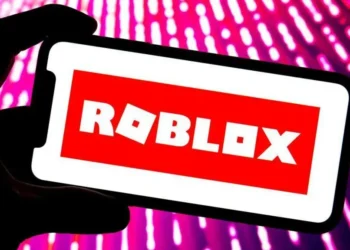Epic Games Store Cuts Revenue Fees to Zero for Smaller Developers
Epic Games is shaking up the world of game distribution again with a bold new initiative aimed at smaller developers. The company has announced that it will completely eliminate its revenue fees for the first $1 million in annual sales per game, set to go into effect this June.
This move is a further step in Epic’s ongoing challenge to Steam’s dominance in the PC gaming market. For more than six years, Epic has undercut Steam’s standard 30% revenue cut by charging developers only 12%. Now, with this new fee structure, developers won’t have to pay anything for the first million dollars in revenue each year. After reaching the $1 million mark, the usual 12% fee will kick in for any additional earnings.
Epic’s focus on supporting smaller developers isn’t new. In fact, the company has a history of offering financial breaks to indie creators. Back in 2011, Epic removed royalty payments for the first $50,000 in sales for projects made with the free Unreal Development Kit. By 2020, that royalty-free grace period was expanded to cover the first $1 million in lifetime sales for Unreal Engine projects.
This is a stark contrast to Valve’s approach on Steam. In 2018, Valve reduced its 30% cut to 25% on lifetime earnings above $10 million and further reduced it to 20% once earnings hit $50 million. This “better deal for bigger developers” strategy received backlash from Epic Games CEO Tim Sweeney, who took to email to express his frustration, calling out Valve for favoring larger developers over smaller ones.
Epic’s Shift to Self-Publishing and the Focus on Smaller Games
Epic Games Store’s early years were marked by a curated selection of games from established developers and exclusive titles, aiming to attract customers away from Steam. However, by 2023, the store opened its doors to self-publishing, allowing hundreds of smaller games to make their debut on the platform. These include titles like Fell in Love with Coser 4 and Vacation Adventures: Park Ranger 17 Collectors Edition—just a couple of examples of the many indie projects now available.
This strategic shift is part of Epic’s broader goal to carve out a space in the competitive world of PC game distribution. While this move is sure to cost Epic a significant amount of revenue, the company has shown a willingness to invest heavily in the store to challenge Steam’s dominance. In 2024, Epic Games Store saw over $1 billion in customer spending, though it still lagged far behind Steam’s estimated $10.8 billion in the same period.
A Long Road Ahead for Epic
Despite this progress, Epic’s early hopes of capturing 35 to 50% of the PC gaming market by 2024 remain unfulfilled. The company’s revenue-sharing overhaul signals its continued commitment to pushing against Steam’s near-monopoly on the market. But whether this latest change will significantly increase Epic’s share remains to be seen.
The company is betting that this new approach, which puts smaller developers front and center, could be the key to long-term growth and success, positioning Epic Games Store as a more welcoming platform for indie creators looking for more favorable terms.
While Epic Games is making a bold move by cutting fees to zero for smaller developers, it will take time to see how this reshapes the PC gaming landscape and whether it will inspire other companies to follow suit. But one thing is clear: Epic is playing the long game, and this move could be the next step toward leveling the playing field for indie developers worldwide.
This article was rewritten by JournosNews.com based on verified reporting from trusted sources. The content has been independently reviewed, fact-checked, and edited for accuracy, neutrality, tone, and global readability in accordance with Google News and AdSense standards.
All opinions, quotes, or statements from contributors, experts, or sourced organizations do not necessarily reflect the views of JournosNews.com. JournosNews.com maintains full editorial independence from any external funders, sponsors, or organizations.
Stay informed with JournosNews.com — your trusted source for verified global reporting and in-depth analysis. Follow us on Google News, BlueSky, and X for real-time updates.














